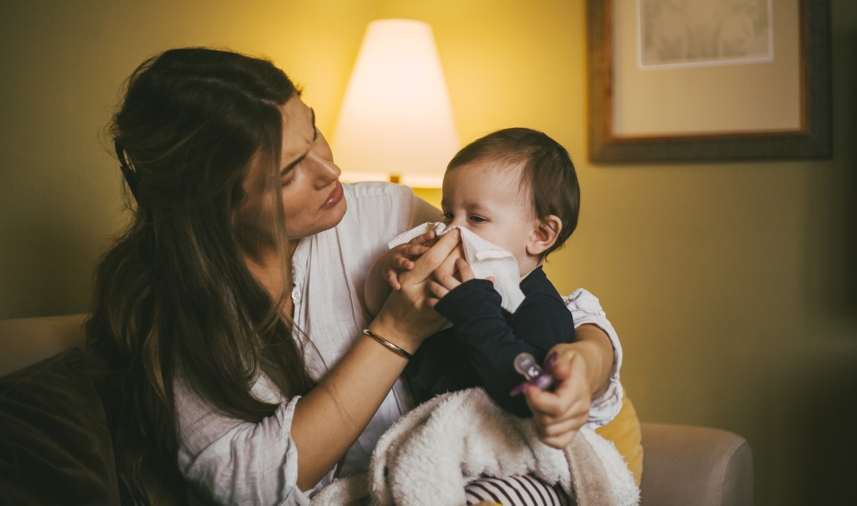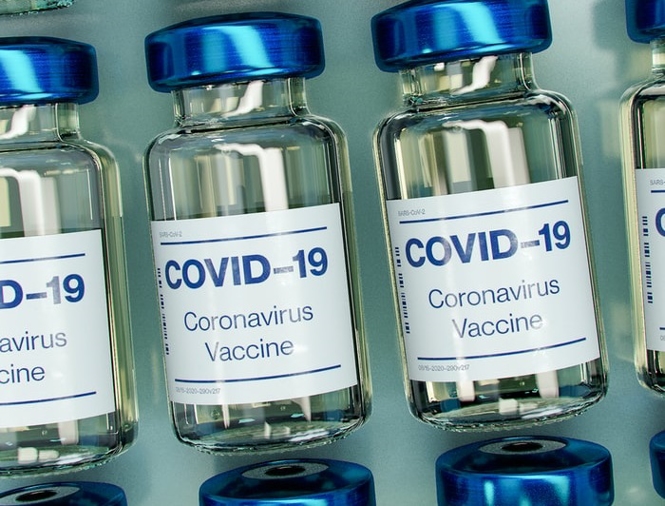Know how to manage RSV, flu and COVID-19 this winter
Dec 9, 2022

Have you heard the terms “tripledemic” or "tridemic" recently? These are names that have been coined to reference three illnesses that are on the rise this winter: Respiratory Syncytial Virus (RSV), influenza and COVID-19. It’s important that parents with young children and adults with compromised lung function understand these illnesses, how to manage symptoms at home, and when to seek medical help.
The least known of these illnesses isRSV, which, in a lot of ways is similar to a common cold. RSV usually causes mild, cold-like symptoms and most people recover in a week or two. RSV can be serious, however, for infants and older adults.
Protect your family and others
There are steps you and your family can take to avoid getting sick in the first place:
- Get vaccinated againstfluandCOVID-19
- Wash your hands frequently and for at least 20 seconds (some of these germs can live on surfaces for hours)
- Avoid touching your face
- Wear a mask
In addition, remember to limit the spread of germs:
- If you feel sick, stay home and manage your symptoms as noted below
- Cover your coughs and sneezes to avoid getting germs on others or on surfaces others may touch
Treat mild symptoms at home
Already sick? Most childhood respiratory illnesses, like RSV, are mild and resolve on their own. Here are six ways you can ease your child’s discomfort at home:
- Reduce congestion with nasal saline and gentle suctioning.
- Run a cool-mist humidifier.
- For infants, continue breast or bottle feeding to ensure good nutrition.
- For other children, be sure to offer clear fluids such as water, broth, or sports drinks to prevent dehydration.
- Give your child fever-reducing medications such as acetaminophen and ibuprofen if they have a fever of 100 degrees or higher. It’s important to note that:
- These medications are appropriate for children6 months of age and older.
- Infants and children shouldnotbe given aspirin.
- You should only use other medications or medications for infants less than 6 months old under the guidance of your healthcare provider.
- Stay home at least 24 hours after there is no longer a fever or signs of a fever (without the use of fever-reducing medicine).
Know when and where to seek care
Most of the time, RSV, the flu and COVID-19 will be treatable at home, but it’s important to seek medical attention in certain situations.
Pediatrician/Urgent Care:
Seek care from yourdoctoror an urgent care clinic in these situations:
- Your child is having trouble sleeping, is unusually fussy and the home treatments above are not helping.
- Your child is tugging at their ears, or you see ear drainage.
- Your child has a fever that lasts more than three days.
- For a person of any age, symptoms do not improve after seven days.
Emergency Room:
Visit188亚博when these symptoms are present:
- Your child has fast breathing, flaring nostrils, grunting or wheezing while breathing, belly breathing, pauses in breathing.
- Your child has significantly decreased activity and alertness.
- Your child is not drinking or not tolerating fluids.
- Fever above 100.4°F in infants 2 months of age or younger.
- For a person of any age:
- Fever above 104°F that doesn’t respond to fever-reducing medication.
- Gray or blue color to tongue, lips, or skin.
- Chest pain.


